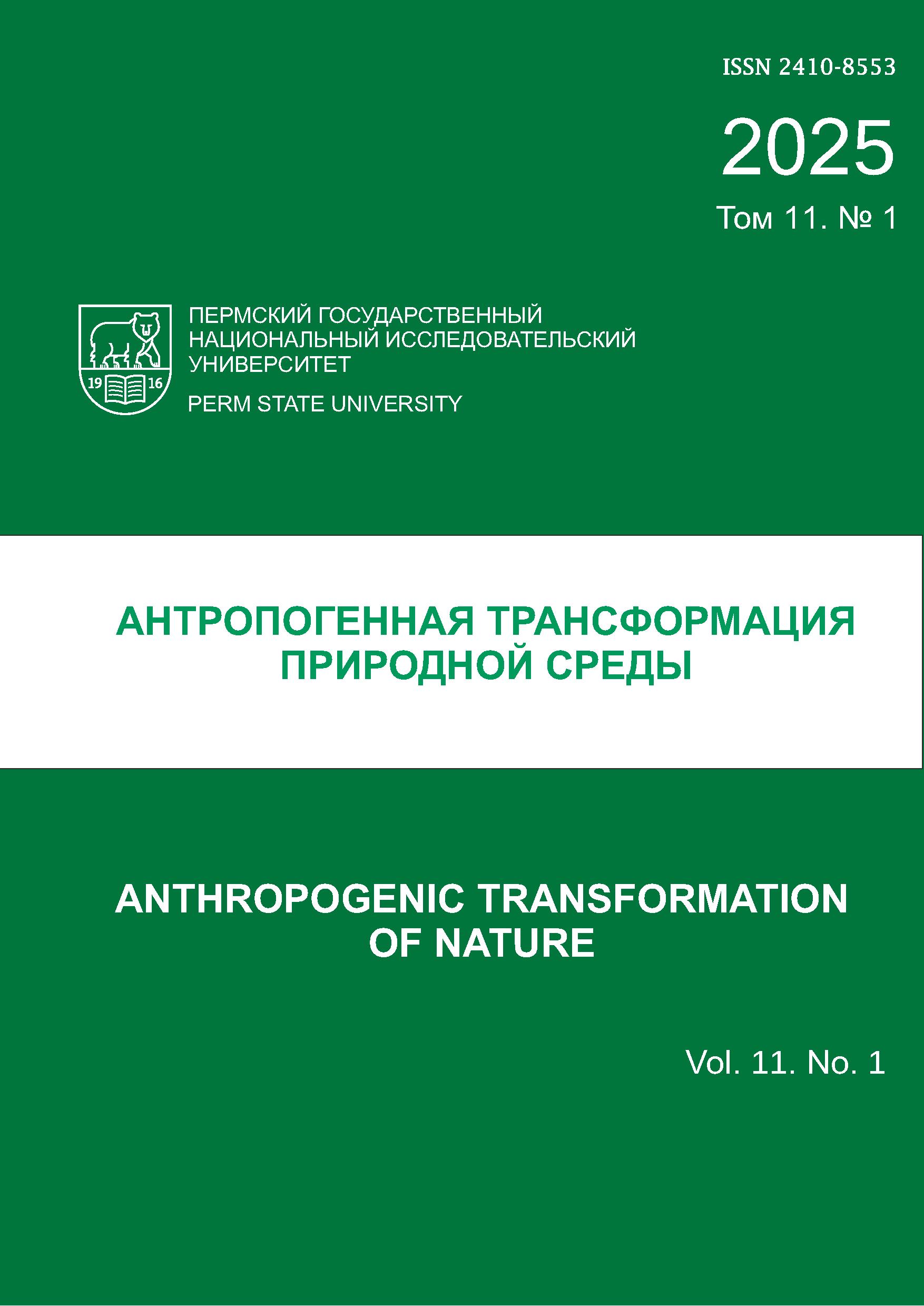About the Journal
The journal «Anthropogenic Transformation of Nature» (ISSN 2410-8553) presents original papers, review papers and short communications articles addressed to geoecological problems, scientific questions of interaction of Man and Nature. All material in the Journal should correspond to three thematic sections:
- Nature and Landscape Conservation (Scopus classification);
- Pollution (Scopus classification);
- Earth-Surface Processes (Scopus classification).
Articles on a geoecological, geographical, ecosystem, biogeochemical, biological and palaeoecological basis are preferred.
The journal is of interest to research institutes; educational institutions providing higher professional education and carrying out scientific activities; scientific libraries and scientists working in the field of geoecology, ecology, conservation and restoration of nature.
Since 2021, the frequency of a publications is 2 times a year. Until 2021, the Journal was published once a year.
THE JOURNAL IS INDEXED IN SYSTEMS:
Russian Science Citation Index
THE JOURNAL IS SHARED ON PLATFORMS:
Национальный цифровой ресурс «Руконт»
Founder: Federal State Autonomous Educational Institution of Higher Education «Perm State University»
Founder address: 15, Bukireva st., Perm, 614990, Russia
Editorial office address: 15, Bukireva st., Perm, 614990, Russia, Faculty of Geography, Department of Biogeocenology and Nature Protection
Current Issue

